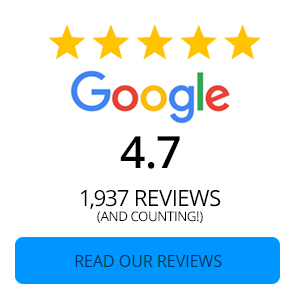Everyone wants to save money, but the way you save has a profound impact on your financial well-being and overall quality of life. In the conversation about saving, two words are often used interchangeably, yet they represent vastly different philosophies: frugal and cheap. Understanding the frugal vs. cheap debate is the first step toward building a healthier relationship with your money.
What defines a frugal person is a thoughtful, value-driven approach to spending. In contrast, being cheap is often a fear-based reaction to cost, regardless of the consequences. This guide will explore the difference between frugal and cheap, helping you harness the power of smart financial choices.
What Does Frugal Mean? A Clear Frugal Definition
At its core, the frugal meaning is about being resourceful and prioritizing value. A frugal person isn't against spending money; they are against wasting it. Frugality is the efficient management of resources to achieve long-term goals. It's about being intentional with every dollar to maximize its utility and impact.
Frugality is Strategic: It involves planning, research, and aligning spending with personal values and financial goals.
Frugality is Value-Oriented: The focus is on the overall value received, not just the price tag paid.
Frugality is Empowering: It gives you control over your finances, reducing stress and building wealth.
On the other hand, being cheap is simply about spending the least amount of money possible, right now. It is a one-dimensional focus on the lowest price, often ignoring quality, long-term cost, ethics, and the impact on others.
The Key Difference Between Frugal and Cheap: A Detailed Comparison
The cheap vs. frugal mindset manifests in every financial decision you make. While both individuals like saving money, their approaches, motivations, and outcomes are worlds apart. Let's break down the core differences.
Mindset: "I Choose" vs. "I Can't"
A cheap mindset is rooted in scarcity. If you often find yourself telling friends or family, "I can't afford that," you may be operating from a place of restriction. This language creates a negative and powerless relationship with money.
A frugal person reframes this with empowerment. Instead of saying, "Sorry kids, we can't afford that new video game," they might say, "We're choosing to save our money for our big family vacation this summer, so we're not buying that game right now." Moving from "I CAN'T" to "I CHOOSE" is a powerful shift. It puts you in the driver's seat, making conscious decisions that align with your priorities. The result is a refreshingly secure way to approach frugal living.
Focus: Long-Term Value vs. Immediate Cost
Perhaps the most significant difference between the two lies in the perception of value. The cheap person is fixated on the initial cost. They will spend hours searching for a product at the lowest possible price, even if it means buying a poorly made item that will break in a few months.
The frugal person, however, understands the difference between price and value. They know that sometimes, spending more upfront saves much more in the long run. For instance, let's say you need a new refrigerator. The cheap person might buy the lowest-priced model available, despite hundreds of one-star reviews complaining about breakdowns. The frugal individual will research energy efficiency ratings, read customer reviews, and choose a reliable model that may cost more initially but will save money on electricity and repair bills for years. They always consider whether the cheaper product will actually cost them more money over its lifetime.
Perspective: Long-Term Goals vs. Short-Term Gains
Being truly frugal takes patience and foresight. It often requires delaying short-term gratification to achieve significant long-term financial goals, like a down payment on a house, a comfortable retirement, or funding a child's education. This long-term thinking is the cornerstone of building wealth.
The cheap person is almost exclusively focused on the here and now. They will cut corners today even if it jeopardizes tomorrow. This short-sightedness can be costly, preventing them from ever reaching major financial milestones. A frugal living strategy is a marathon, not a sprint.
Impact on Others: Generosity vs. Selfishness
How you treat others is a major indicator in the frugal vs. cheap comparison. Frugal people are smart enough to put valuable relationships before possessions. They budget for things like birthday gifts, tipping appropriately at restaurants, and contributing their fair share to a group outing. Their financial planning includes being a good friend, family member, and citizen.
Cheap people, however, often let their cost-cutting negatively affect others. They might complain that everything is overpriced, consistently under-tip service staff, or try to avoid paying their portion of a dinner bill. This behavior can damage relationships and earn them a reputation for being stingy, not savvy.
A Quick Guide: Frugal vs. Cheap vs. Spendthrift
To fully understand the frugal definition, it helps to see it on a spectrum. On one end, you have the cheap person. On the opposite end is the spendthrift—someone who spends money extravagantly and wastefully. The frugal person sits comfortably and wisely in the middle.
Attribute |
Frugal Person |
Cheap Person |
Spendthrift |
Primary Focus |
Value & Priorities |
Price |
Instant Gratification |
Mindset |
Resourcefulness |
Deprivation |
Impulsiveness |
Time Horizon |
Long-Term |
Short-Term |
Immediate |
Outcome |
Financial Freedom |
Potential for Higher Costs |
Debt & Financial Stress |
The Takeaway: Choose Frugal Living for Financial Wellness
Changing your money-saving philosophy can be a challenge, but the rewards are immense. The debate of frugal vs. cheap isn't just about semantics; it's about choosing a path of empowerment over fear, and strategy over short-sightedness. Being a frugal person means you are the master of your money, using it as a tool to build the life you want.
Let these tips provide you with some inspiration for where to begin. If you're hungry for more ideas on how to develop a frugal lifestyle, West Virginia University has published a smart piece packed with ways to do just that. And don't forget to follow Coosa Valley Credit Union on social media for a steady flow of money-saving tips straight to your news feed.

